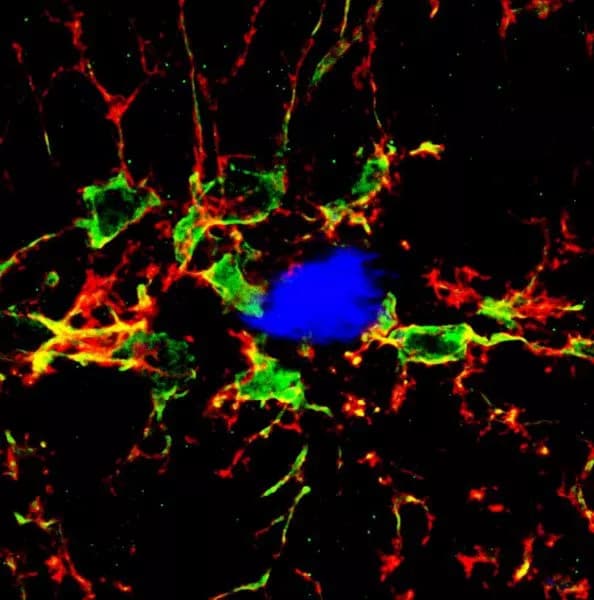
Body's Immune System May Play Larger Role In Alzheimer's Disease Than Thought
Immune cells that normally help us fight off bacterial and viral infections may play a far greater role in Alzheimer's disease than originally thought, according to University of California, Irvine neurobiologists with the Sue & Bill Gross Stem Cell Research Center and the Institute for Memory Impairments and Neurological Disorders.
The researchers discovered this when Alzheimer's disease mice genetically modified to lack these key immune cells in their blood developed the distinctive brain plaques associated with the neurodegenerative disorder much more quickly.
According to Mathew Blurton-Jones, assistant professor of neurobiology & behavior, and doctoral student Samuel Marsh, their findings could lead to the creation of new techniques to help identify, or perhaps even treat, individuals at risk of developing the disease.
Alzheimer's is the leading cause of age-related dementia and is thought to be driven by the accumulation of a protein called beta-amyloid that aggregates to form amyloid plaques in the brain. Microglia, immune cells that reside in the brain, attempt to clear this buildup, but in Alzheimer's, they appear to be fighting a losing battle. While many studies have explored the role of microglia in Alzheimer's, very few researchers have asked whether a different set of immune cells called T-cells and B-cells that reside outside the brain and play a large part in autoimmune diseases might also impact Alzheimer's.
To test this idea, Blurton-Jones and Marsh bred genetically modified Alzheimer's disease mice to lack three key immune cell types: T-cells, B-cells and NK-cells. Six months later, when the brains of these mice were compared to those of Alzheimer's mice with intact immune systems, the scientists found a more than twofold increase in beta-amyloid accumulation.
"We were very surprised by the magnitude of this effect," Blurton-Jones said. "We expected the influence of the deficient immune system on Alzheimer's pathology to be much more subtle."
To understand how the loss of these immune cells was increasing beta-amyloid, he and Marsh examined the interactions between these peripheral cells and microglia within the brain.
"We found that in Alzheimer's mice with intact immune systems, antibodies -- which are made by B-cells -- accumulated in the brain and associated with microglia. This, in turn, helped increase the clearance of beta-amyloid," Marsh said.
To further confirm the importance of this interplay between immune cells in the blood and those in the brain, the researchers transplanted healthy bone marrow stem cells into the immune-deficient Alzheimer's mice. Since T-, B- and NK-cells develop from bone marrow stem cells, this transplantation led to a reconstitution of the missing immune cells. This allowed the B-cells to produce antibodies that once again reached the brain and aided microglia in eradicating the beta-amyloid.
"We know that the immune system changes with age and becomes less capable of making T- and B-cells," Blurton-Jones said. "So whether aging of the immune system in humans might contribute to the development of Alzheimer's is the next big question we want to ask."
Study results appear in the early online edition of Proceedings of the National Academy of Sciences.
The above post is reprinted from materials provided by University of California, Irvine. Note: Materials may be edited for content and length.
Disclaimer: DoveMed is not responsible for the adapted accuracy of news releases posted to DoveMed by contributing universities and institutions.
Primary Resource:
Marsh, S. E., Abud, E. M., Lakatos, A., Karimzadeh, A., Yeung, S. T., Davtyan, H., ... & Inlay, M. A. (2016). The adaptive immune system restrains Alzheimer’s disease pathogenesis by modulating microglial function. Proceedings of the National Academy of Sciences, 113(9), E1316-E1325.
Related Articles
Test Your Knowledge
Asked by users
Related Centers
Related Specialties
Related Physicians
Related Procedures
Related Resources
Join DoveHubs
and connect with fellow professionals

0 Comments
Please log in to post a comment.